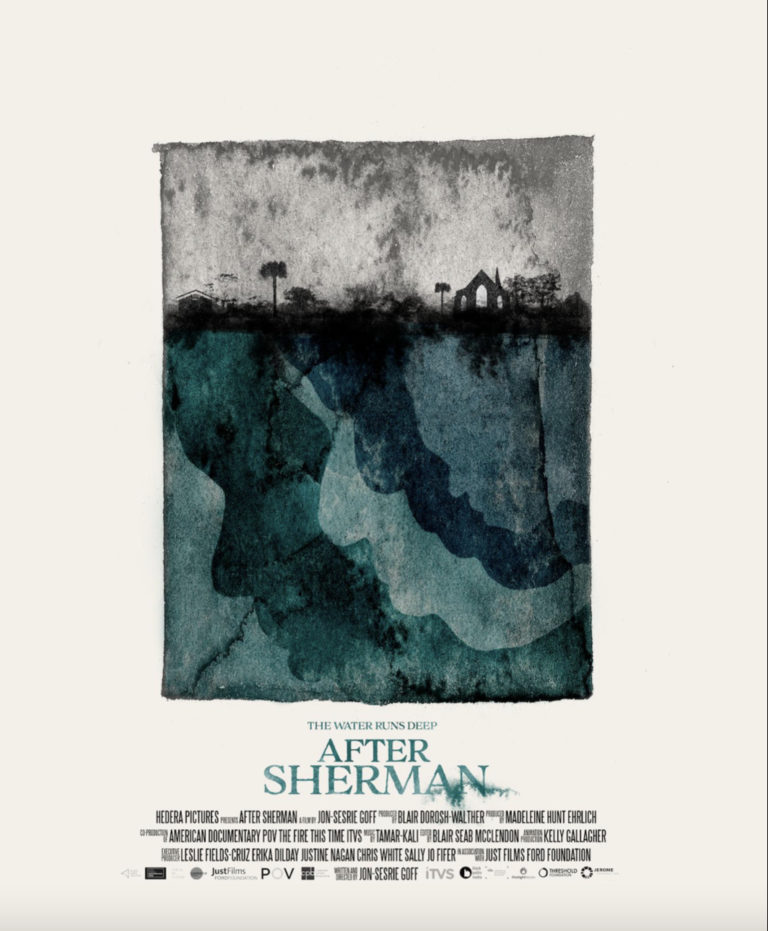
“There is a birthplace and there is a home place”. The words from Reverend Norvel Goff Sr opens the documentary “After Sherman”. It is also the core of what is to follow. We are where we come from, but we become where we are. Wherever home is now, the past is always present.
For the people of the Gullah Geechee community in South Carolina defining what home means lives in the aftermath of slavery, when black people were violently ripped from their birthplaces and families. The director Jon-Sesrie Goff, the son of Reverend Goff Sr, tries to understand how it all came about and dives into a world full of stories, rituals, systematic racism and celebration of life’s beauty. Black people are interviewed to tell their family stories and experiences, both in front of the camera and in unidentified voices. In Goff’s non-linear, experimental approach he lets the voices combined with lush images, black and white footage, Indigo Muse BMI’s music and snapshots of contemporary conversations guide us, enlighten us, move us. It is both cinematic poetry and a poignant essay with a tone from heaven.
Goff, a multidisciplinary artist whose work crosses different mediums and platforms, manages not only to meditate on the community of South Carolina, including his personal history, but also how black people in America have been stripped of memory and roots, yet still create homes with a connection to the past. People learned how to pick beans, to weave nets, farm chickens, to plant, to cock, to build homes. The important part is to stand side by side with your family. Started generations ago with grandparents and great grandparents who were slaves and yet find ways. That is legacy, that is inheritance.
The unfinished conversations of America’s cruel history are done with insight and wisdom and make ‘After Sherman” utterly unique. The dialogues are fragmental, the images are rich, and history is not weighted down on the wonderful people, they are part of it. “We have a history of knowing who we are” a voice says. The questions of land, owning land and whom it belongs to are crucial – footage of South Carolina’s landscape, fields, forests, and rivers sweep throughout the film. Goff balances these contradictions and tensions with grace. He links the past to the presence in the cycle of resistance and resilience.
The church has a central place in the community with music, songs, prayers and words of wisdom. From slavery times to present, the church has always served as a bastion of hope and peace for African Americans. A place to provide food and shelter and to create a base of solidarity. Reverend Goff is part of Mother Emanuel Church in Charleston. Yes, the church where a white gunman killed nine black churchgoers in 2017. The father, who had left the church with Goff’s mother just 20 minutes before the killing, sit by a table contemplating about forgiveness and hatred. He refuses to give the killer, or any other person, control over his life. He believes that there are always evil in the world, but that love, and goodness outflank hatred and fear. There are others with different point of views. The film ends with the question: how deep is your religion?
Dedicated to the nine people killed in the church, and all the children of Africa separated from their homeland and to Goff’s mother, the film asks where does hope comes from. “After Sherman” almost feels like a psalm among the coastal community of Gullah Geechee. What makes this documentary stand out is that Goff creates a true piece of art, layered and personal, just as much as he meditates on USA’s history. The inheritance is part of the living today and the conversations continue, just as the rivers of South Carolina flow.
Grade : B+
Check out more of Niclas’ articles.
Here’s the trailer of the film.

